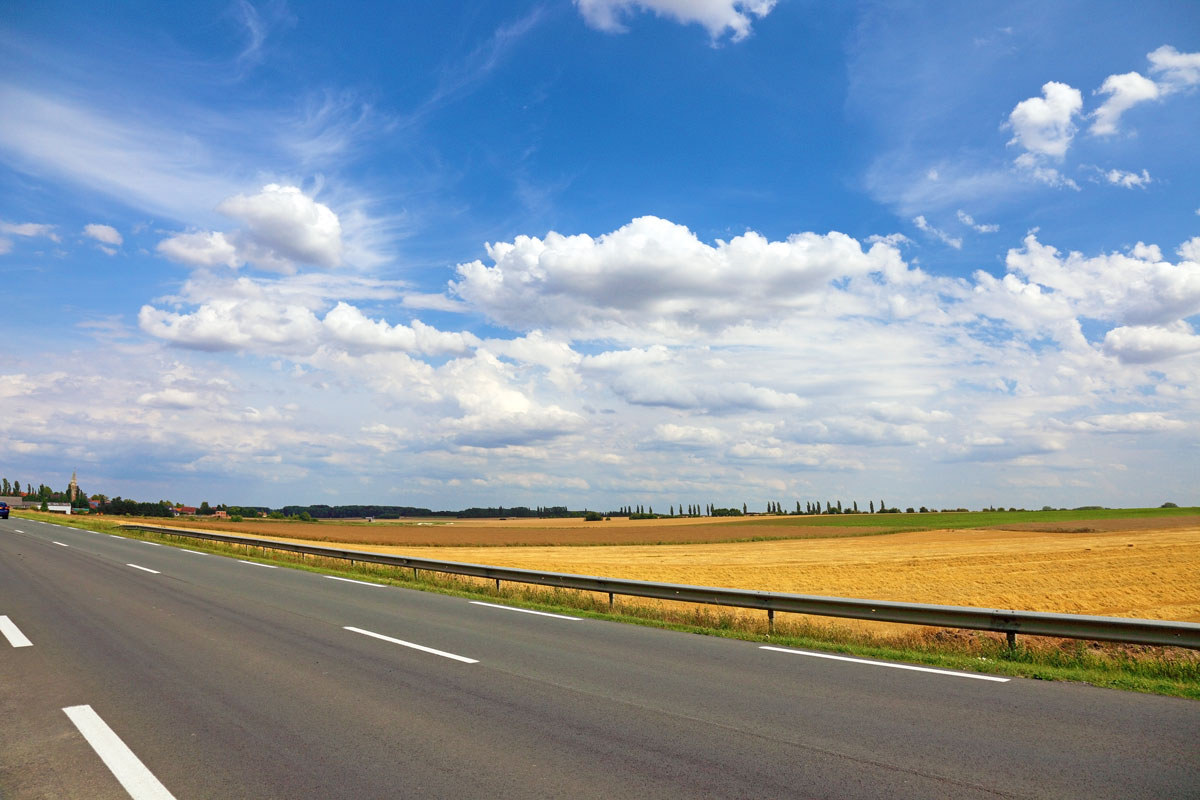Driving a motorhome in France
When driving a motorhome in France there are many rules and regulations to be aware of. Here are a few of the most common to be prepared for.

Driving a motorhome in France
Societe Civile Stamp
For non-residents, you are expected to provide an official document stamp like this example so it is a good idea to have one made in your home country before arriving in France. You simply include your societe civile name, SIRET number and address once complete (available from infogreffe).
Documents to carry in the vehicle
Insurance certificate – Most agents are now digital but best to keep a copy of the “carte verte” certificate with you if issued.
Control Technique – Valid inspection test document (after year 4 from new) and square cutout displayed in the windscreen.
Carte Grise – Original registration document. The law states you should remain in France under a provisional carte grise (if new) and after a title name change (if used). By law, you can drive for one month until your new carte grise arrives.
ID – Valid driving licence plus international driving permit equivalent (unless EU) and passport.
KBIS – Your certificate of formation for your societe civile if applicable.
Mandatory vehicle items
Reflective jackets – One for each occupant, these must be kept inside the vehicle within easy reach.
Warning triangle – Compulsory in every vehicle with four wheels or more.
Breathalyser/alcohol test – A 2013 law making these mandatory has been paused however the law still states that drivers and motorcyclists must have an alcotest ready for use in their vehicle even though no penalty will be imposed if they cannot present one during a police road check.
Spare bulbs – It is recommended but not mandatory that you carry a spare bulb kit for your vehicle.
Snow chains – May also be needed in some areas during winter. These areas will be indicated by signs and are compulsory, so it is worth having them in your car if you’re visiting during winter.
Insurance
Driving outside France – Different insurers have different rules and durations. Allianz has the longest with 6 months consecutively outside France and 90 days breakdown cover. AXA is 3 months for each. If you intend to go on extended European trips, you will need to check the details with the insurer.
Green certificate system – France is part of a European wide insurance system, for more details and country list visit the official COB website.
Forward your carte grise – Once the carte grise has been updated with you as the title owner, send a scan of this to your insurer so they can validate your policy and full year’s cover.
Breakdown Assistance
Allianz: +33 1 40 25 58 86 (ignore the automated instructions and simply hold to speak to a person)
AXA: +33 1 55 92 26 92
Speeding Fines
The odd speeding ticket is inevitable when touring France but when using a société civile you will be asked to specify the driver of the vehicle (as instructed on the notice) otherwise you could pay a much higher charge later.
Read our step by step guide here.
Accident Report Form
There is an accident form to print off and keep in your vehicle available to download here.
An app is also available from Google Play and Apple Store.
It is completed and signed by both parties as a record to what occurred.
Full information on the government website.
Crit’Air Stickers
Some cities of France have been designated ‘low emission zones’ and can be permanent (ZCR or ‘Zone à Circulation Restreinte’) or temporary (ZPA or ‘Zone de la Protection de l’Air’). Diesel vehicles made before 2006 are not allowed in these areas at all. Other vehicles should display the appropriate certificate (which you can apply for here and will cost you about €10).
The main cities where this applies currently are: Paris, Gironde/Bordeaux, Hérault/Montpelier, Lille, Lyon, Marseille, Strasbourg, Toulouse and Poitiers.
Refilling gas bottles
If you travel outside France, you won’t be able to exchange your French bottle for a Spanish one for example plus the connection types are different. Solutions are; have a refillable tank installed (commonly Gaslow or Campko) plus adaptor set priced around ~1200 EUR or try the Park4Night app to locate places which can refill a French bottle (recommend by a client).
Toll Roads
If you are covering large distances and are happy to pay for a quieter journey you can use the French toll roads. You can pay by cash, card and automatic payment subscriptions.
Can friends and family drive my motorhome?
Here is a quote directly from one of our insurers: “Any driver is allowed to drive the camping car if they hold their driving licence for more than 3 years. However there can be an additional excess of 750€ in case of accident at fault. It depends on the policy.”
Other rules and regulations
There are too many rules and regulations to detail in their totality here so ensure you conduct your independent research to remain compliant on your trip.
